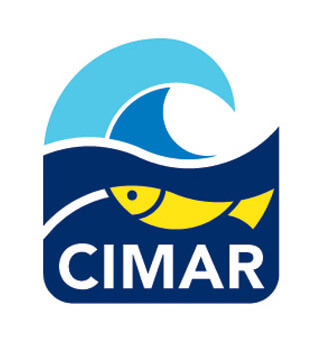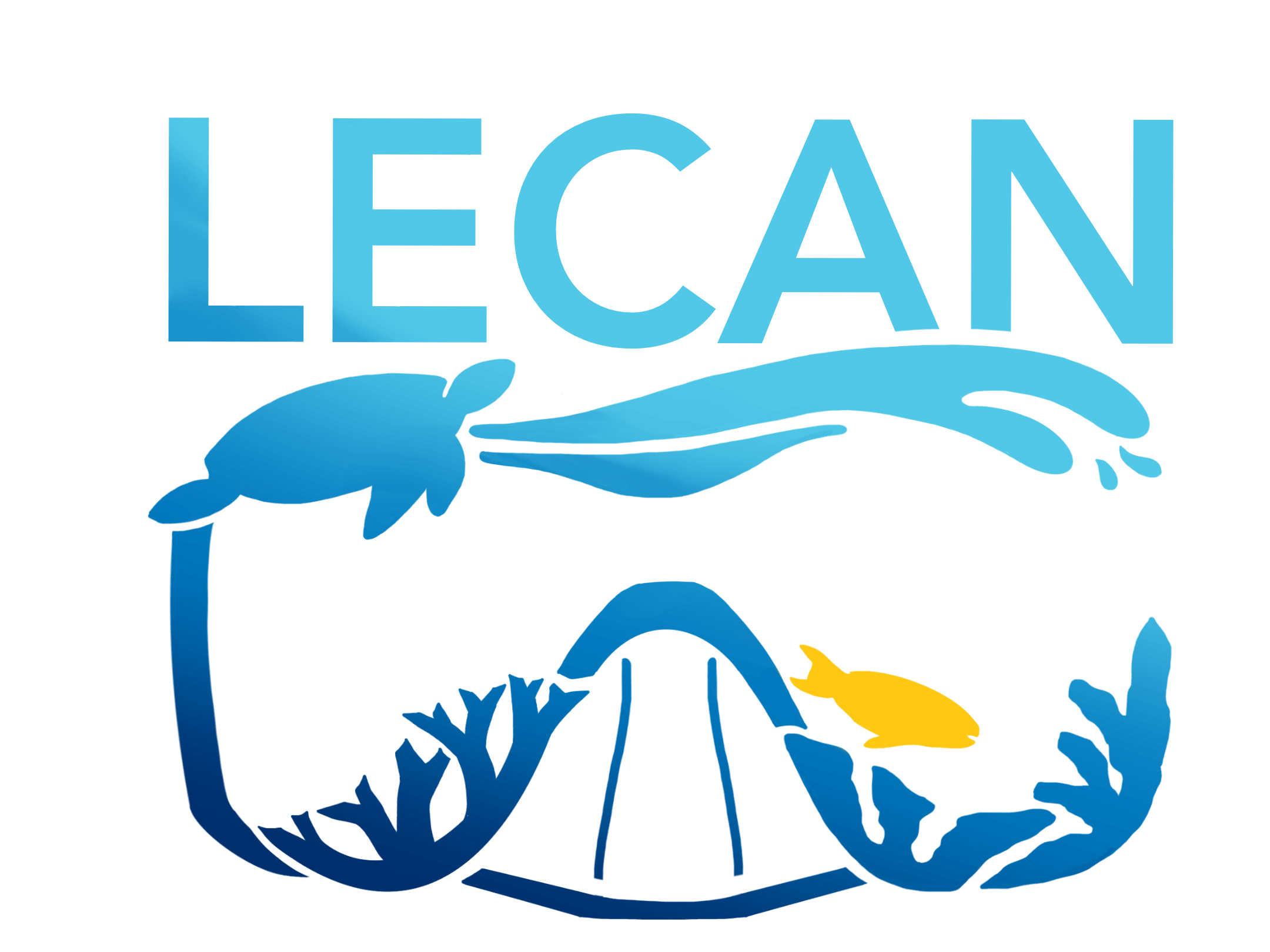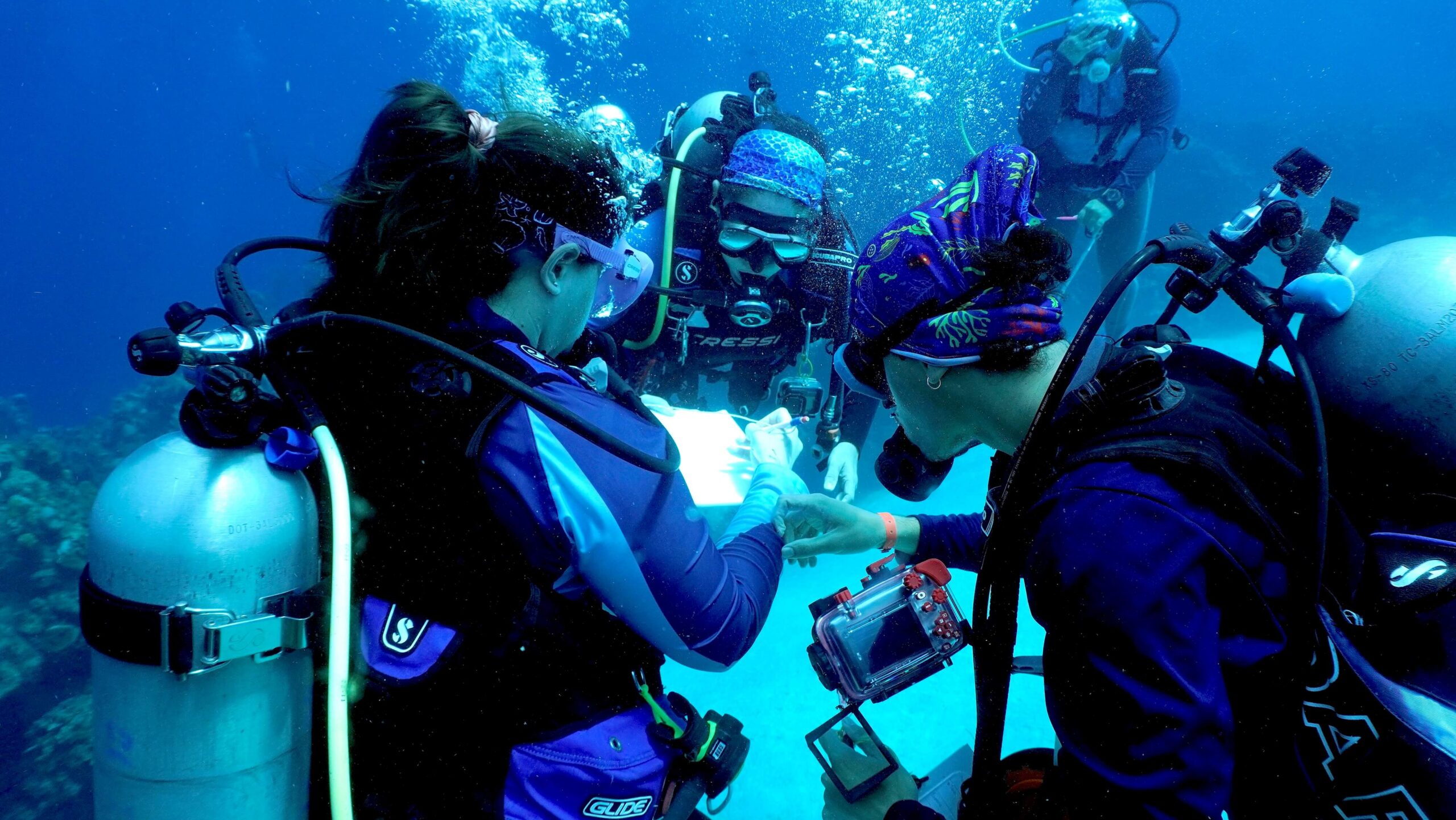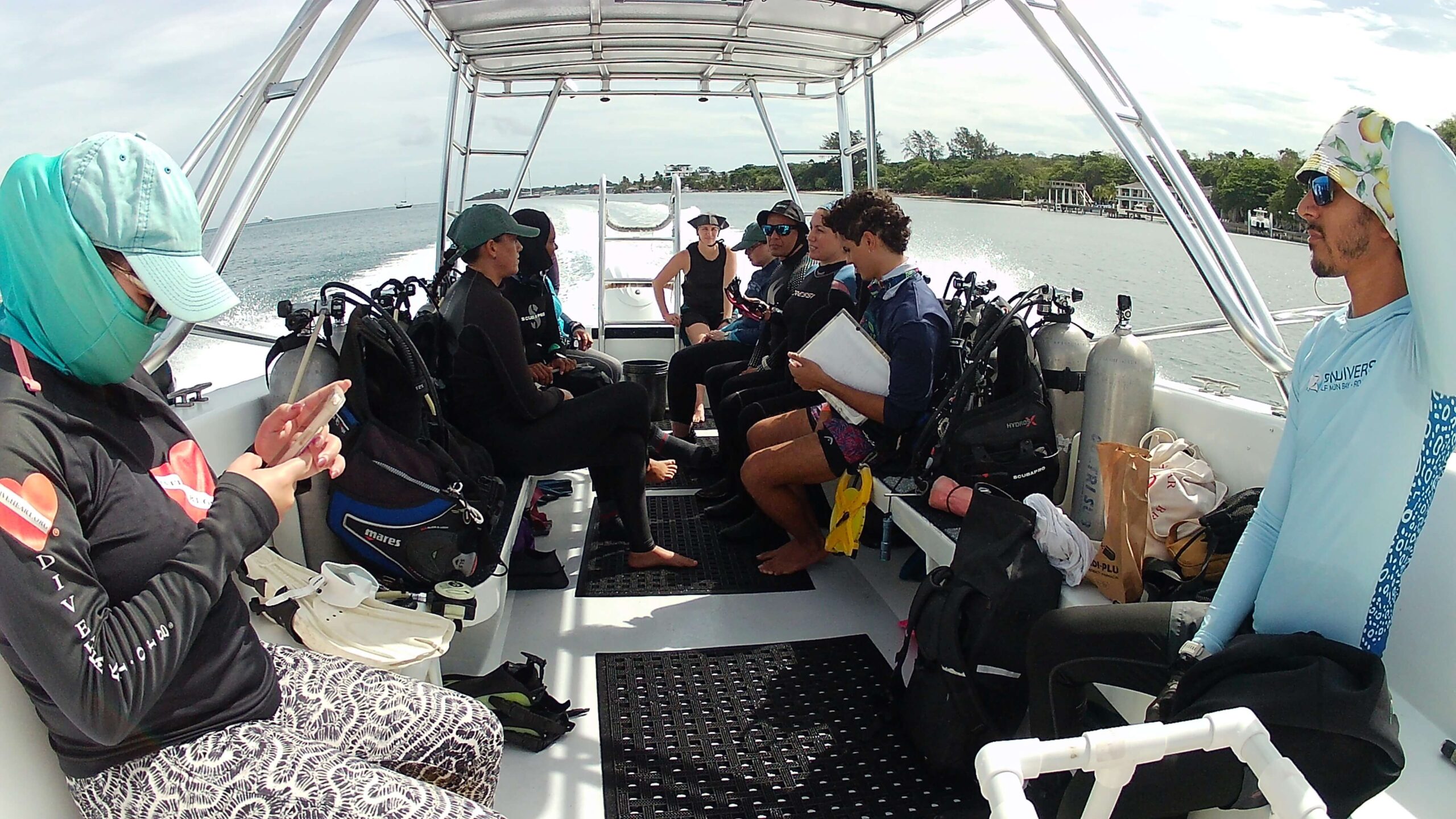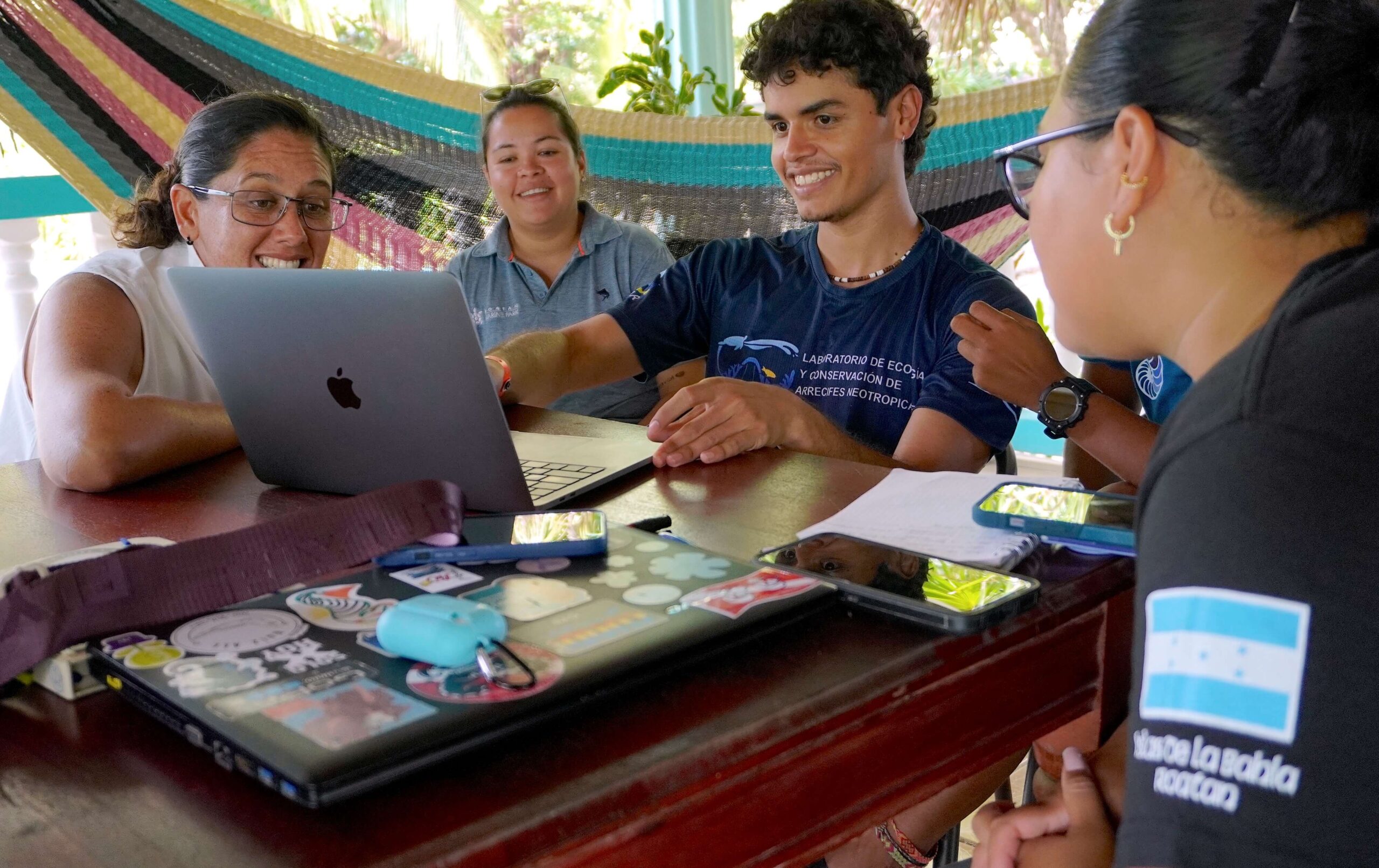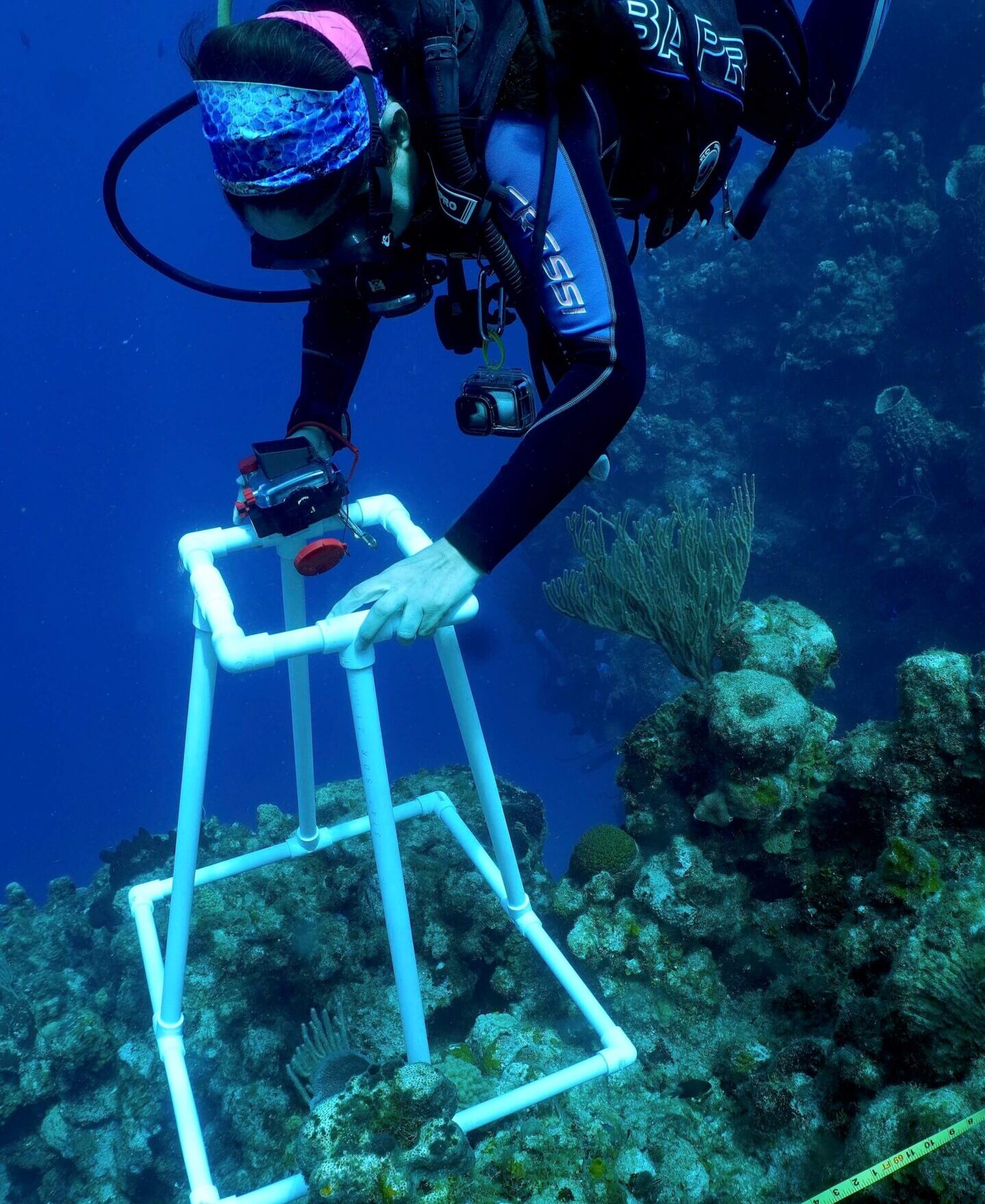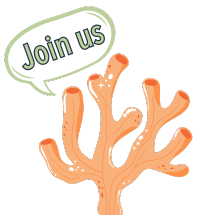Coral Reef Monitoring
Coral research in Mexico, Costa Rica, Honduras, and Colombia
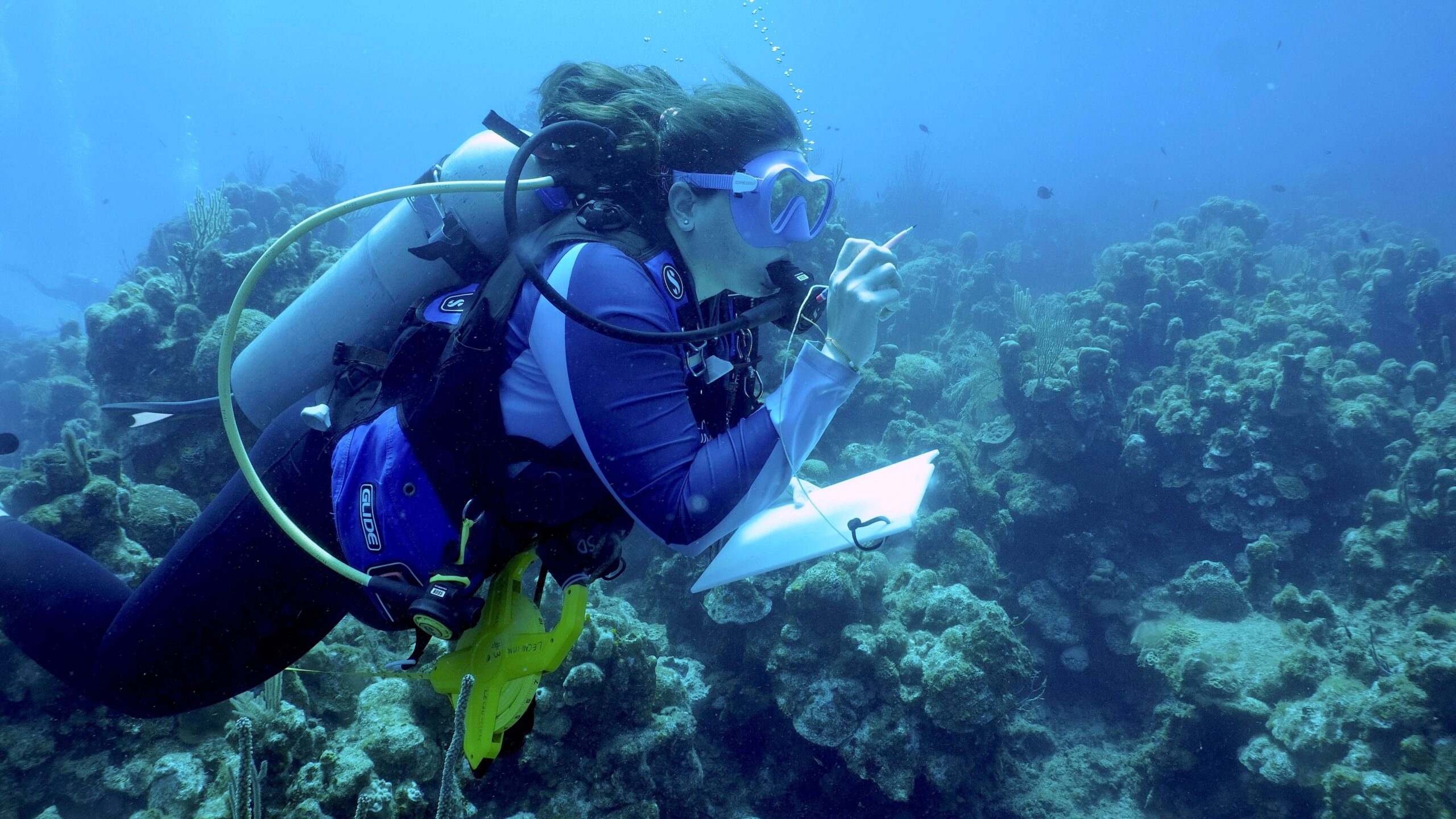
Adventure Scientists is uniting scientists, communities, and governments across four Latin American countries to survey, monitor, and safeguard coral reefs. This project is a bold multi-country, multi-year initiative filling critical gaps in coral reef knowledge and equipping communities with data to support the protection of one of the planet’s most vital ecosystems.
A new chapter for coral reef science
While many coral reef research efforts remain isolated, this project has created something truly groundbreaking.
- Urgency + Reach: Filling gaps in understudied regions to expand understanding and documentation of current reef health in order to protect these ecosystems.
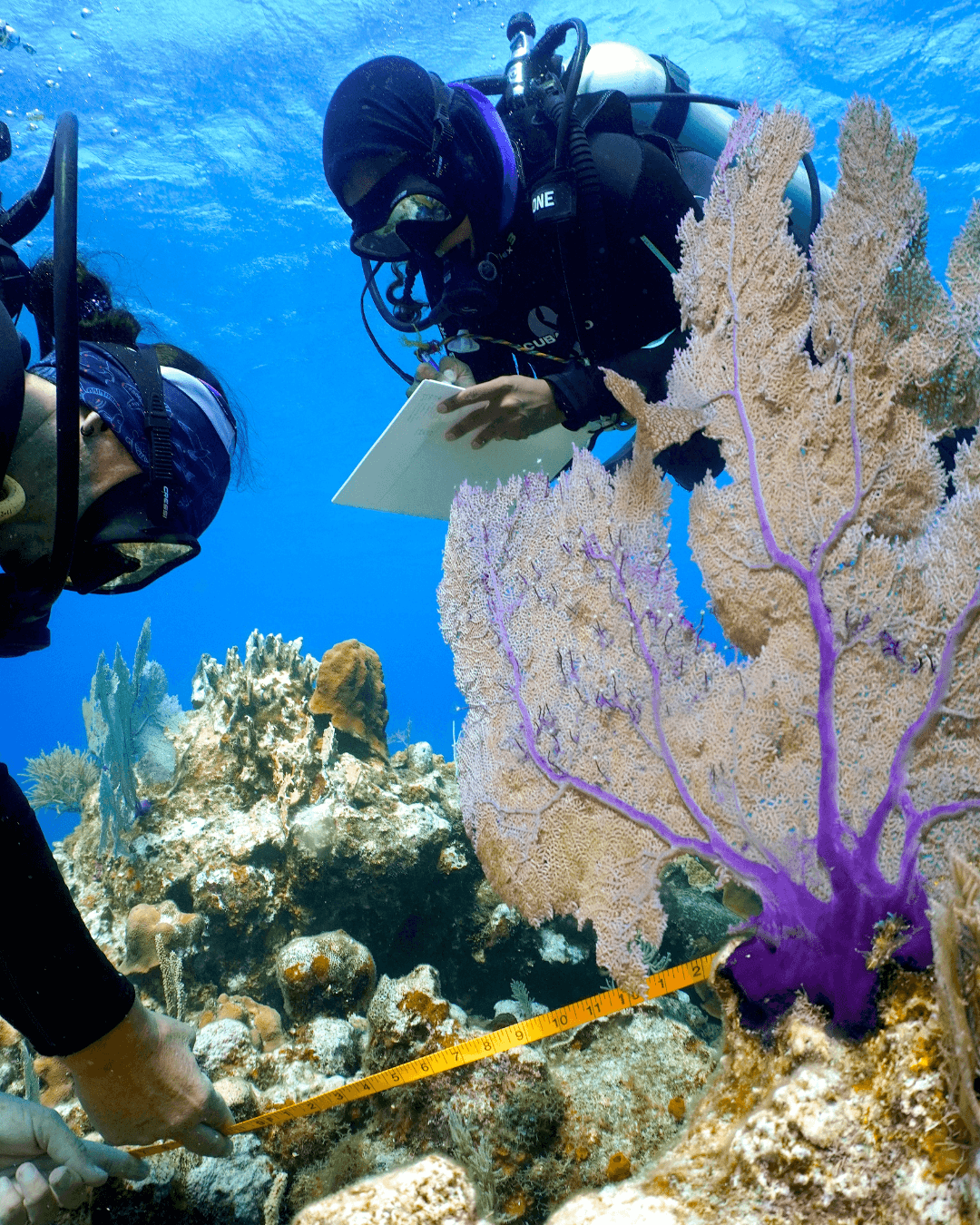
Coral reefs on the edge
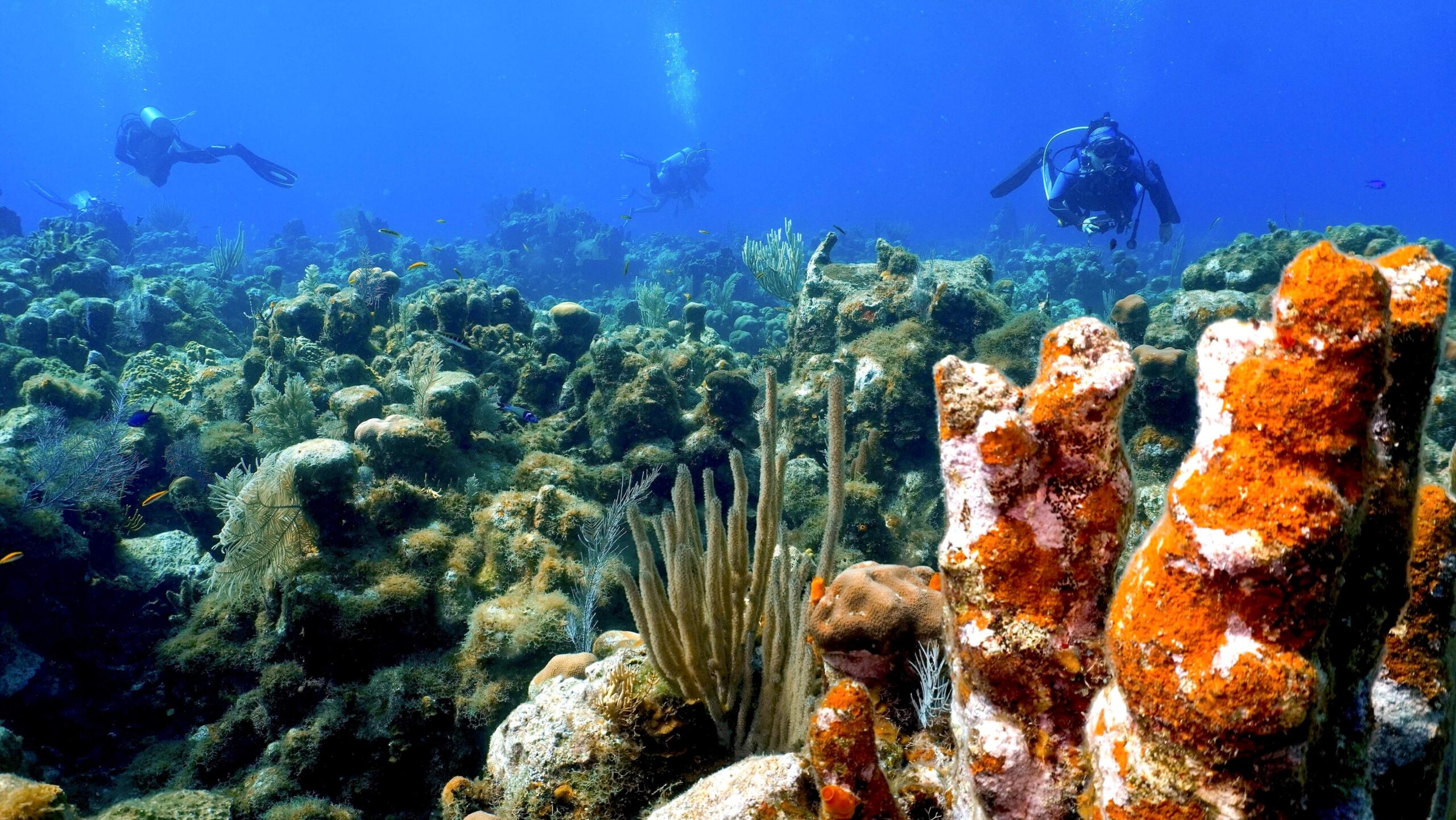
Covering just 0.2% of the ocean floor, coral reefs are home to 25% of marine life. They feed millions, protect coastlines, and sustain economies worth $2.7 trillion annually. Yet, in less than a decade, we’ve lost 14% of the world’s reefs. Despite their immense value, many reefs remain poorly studied. Without bold, coordinated action, many more could disappear before they are even studied.
Transformative roles
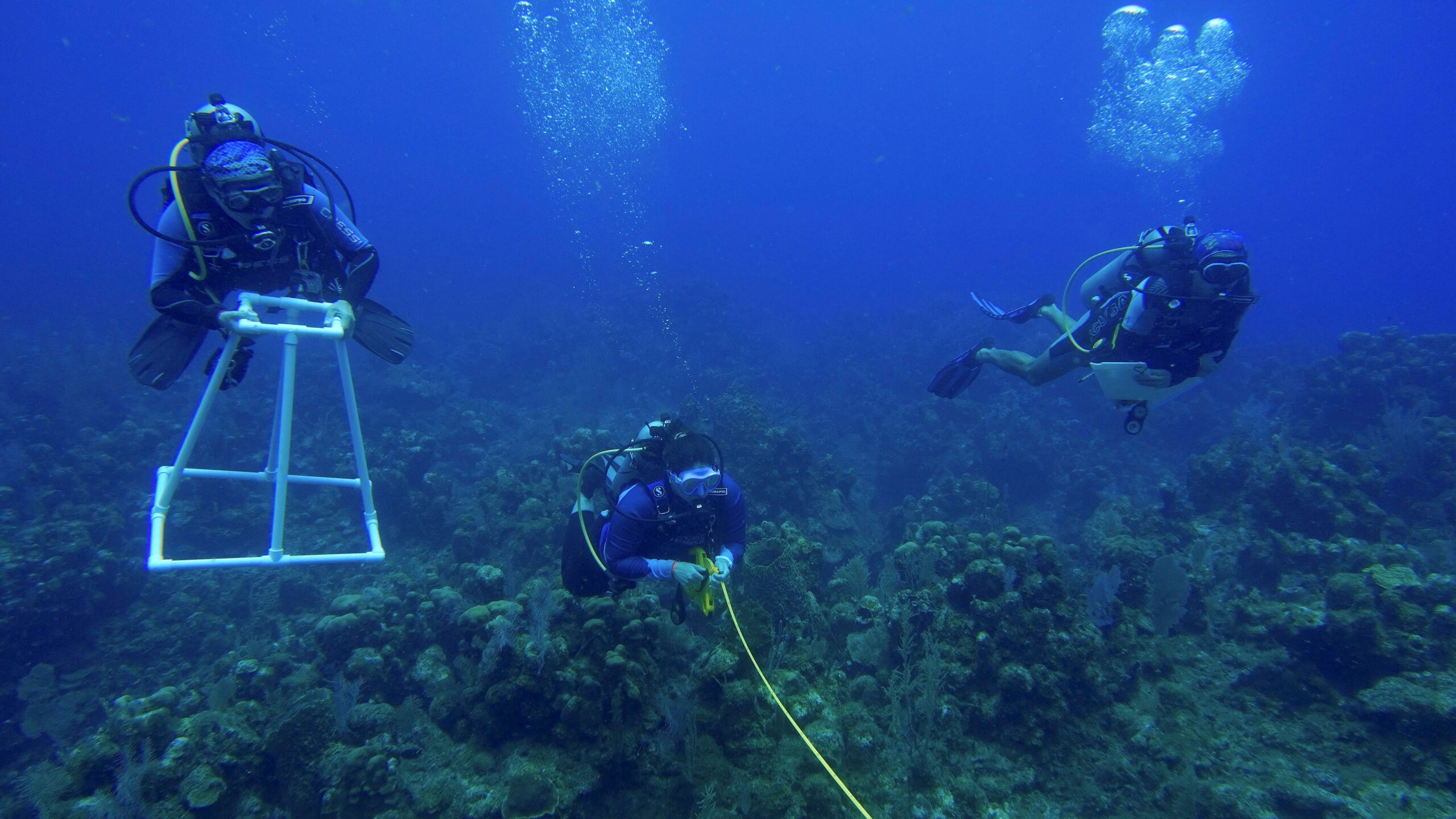
Adventure Scientists has created a multi-year, multi-country initiative spanning Colombia, Costa Rica, Honduras, and Mexico. This is no ordinary project. Together with world-class partners, we’ve set in motion one of the most ambitious community-powered coral monitoring and restoration efforts.
This is more than science. It’s legacy.

Blue Indigo is a nonprofit organization based on San Andrés Island, dedicated to the conservation and restoration of coastal and marine ecosystems. Since 2020, their locally trained team has led impactful projects—including the successful cultivation of over 80,000 coral fragments and transplantation of more than 20,000 coral colonies. Through strategic partnerships with government agencies, NGOs, dive centers, and tourism operators, Blue Indigo continues to expand its reach and drive lasting marine conservation outcomes.
Roatan Marine Park (RMP) is a community-based nonprofit committed to conserving Roatan’s protected marine and coastal areas. Their work safeguards the island’s rich biodiversity—including its ecosystems, wildlife, and cultural heritage—through education, enforcement, and restoration efforts that empower local communities and promote long-term sustainability.
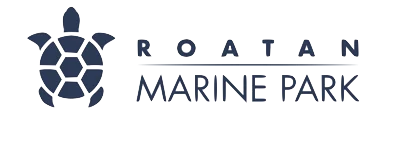

CUCOSTA, a regional campus of the University of Guadalajara, has been dedicated to sustainable development research since its founding in 1994. The institution focuses on coastal resource conservation through five key areas: marine ecology, aquaculture, biogeochemistry and pollution, ecosystem management, integrated coastal zone management, and scientific outreach.
LECAN, part of the Center for Research in Marine and Limnological Sciences (CIMAR) at the University of Costa Rica, generates science-based knowledge to inform decision-making for the conservation of coral reef ecosystems in both the Caribbean and Pacific regions of Costa Rica. Through ecosystem-level monitoring—from genes to species and food webs—LECAN works to understand reef health and train the next generation of scientists to lead positive environmental change.
From data to decisions
This project will deliver actionable insights to the agencies and organizations that shape marine conservation across Latin America. Governments will use this data to designate protected areas. NGOs will leverage it to guide restoration. Local communities will gain the knowledge and skills to protect their reefs long after the project ends. And the world will take notice of the bold leadership that made it possible.


